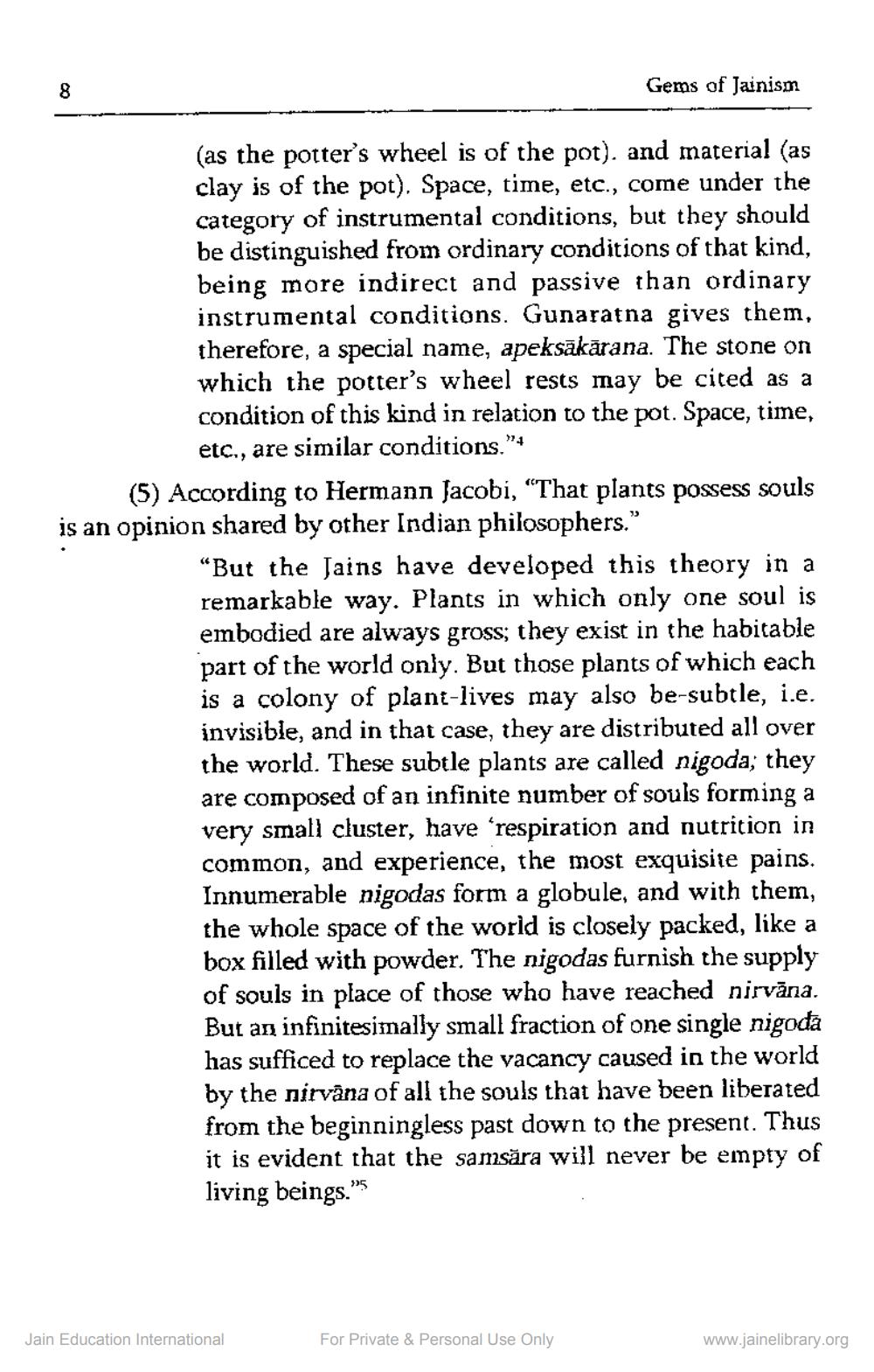Book Title: Jainism in Indian Philosophy Author(s): Hemant Shah Publisher: Z_Gems_of_Jainism_001803.pdf View full book textPage 8
________________ Gems of Jainism (as the potter's wheel is of the pot). and material (as clay is of the pot). Space, time, etc., come under the category of instrumental conditions, but they should be distinguished from ordinary conditions of that kind, being more indirect and passive than ordinary instrumental conditions. Gunaratna gives them, therefore, a special name, apeksakārana. The stone on which the potter's wheel rests may be cited as a condition of this kind in relation to the pot. Space, time, etc., are similar conditions."* (5) According to Hermann Jacobi, “That plants possess souls is an opinion shared by other Indian philosophers." “But the Jains have developed this theory in a remarkable way. Plants in which only one soul is embodied are always gross; they exist in the habitable part of the world only. But those plants of which each is a colony of plant-lives may also be-subtle, i.e. invisible, and in that case, they are distributed all over the world. These subtle plants are called nigoda; they are composed of an infinite number of souls forming a very small cluster, have 'respiration and nutrition in common, and experience, the most exquisite pains Innumerable nigodas form a globule, and with them, the whole space of the world is closely packed, like a box filled with powder. The nigodas furnish the supply of souls in place of those who have reached nirvāna. But an infinitesimally small fraction of one single nigoda has sufficed to replace the vacancy caused in the world by the nirvana of all the souls that have been liberated from the beginningless past down to the present. Thus it is evident that the samsăra will never be empty of living beings." Jain Education International For Private & Personal Use Only www.jainelibrary.orgPage Navigation
1 ... 6 7 8 9 10
